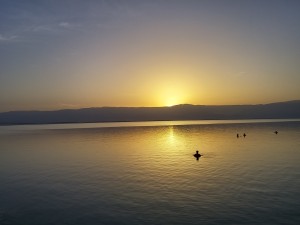For the week of November 14, 2015 / 2 Kislev 5776
Toledot
Torah: Bereshit/Genesis 25:19 – 28:9
Haftarah: Malachi 1:1-2:7
Download Audio [Right click link to download]
“I have loved you,” says the LORD. But you say, “How have you loved us?” “Is not Esau Jacob’s brother?” declares the LORD. “Yet I have loved Jacob but Esau I have hated.” (Malachi 1:2-3)
This Haftarah reading (selection from the Hebrew prophets) was obviously chosen because of its reference to Jacob and Esau, whose story is found in this week’s parsha (Torah reading). And speaking of chosen, that’s what this is all about. Before these boys were born God determined that the younger twin would be the recipient of the promises given by God to their father, Isaac, and grandfather, Abraham. My using the words “determined” and “chosen” causes all sort of emotions for all sorts of people. But I think that the controversy over such things is due to various assumptions, implications, and conclusions that are not necessarily derived from the text. The main misconception about such things is that it must involve fatalism, which even a superficial reading of the text demonstrates that this is anything but the case. The outworking of Jacob’s choseness is anything but fate. The twists and turns are absolutely delightful – that’s delightful for the reader not for Jacob and Esau. Their story involves real people in real circumstances making real decisions. Somehow God is working out his will, but as for how it works, I am happy to leave that with God.
I probably haven’t satisfied most of you who are either champions or opponents of the doctrine of predestination, but I think there is a much more controversial and crucial aspect to the story of Jacob and Esau. However choseness works, God chose Jacob, which is an extension of his choosing Abraham and Isaac and the establishment of the special status of Jacob’s descendants, the people of Israel. That the Master of the Universe might bestow special status upon one nation over any other is thought of by some (or most) as the worst kind of religious arrogance there is – that is until you understand what choseness really entails.
I recently wrote on this elsewhere from the perspective of the Jewish people. And having just returned from leading my first tour to Israel, I can assure you choseness is not what you might think it is. What it does mean is what other people consider normal doesn’t apply to you. They love you or hate you to the extreme, sometimes flipping from one to the other without warning. Most feel the burden of being God’s people without knowing what it is, longing to just fit in, but knowing it isn’t possible. You get a lot of attention, but you never know who your real friends are. You despise being judged by a different standard from everyone else, but deep in your heart you long for that standard.
It’s interesting to me that this description of Jewish choseness could equally apply to any true follower of Yeshua, Jewish or not. Once the God of Israel gets hold of you, you discover that life treats you differently. After a while you realize that this isn’t due to personal choices, other believers, or circumstances. It is because God is involved in your life in an unusual way. You have been set aside for something bigger than yourself as you have been thrust into God’s plans and purposes. You have been chosen. You have special status. This doesn’t mean you’re better than anyone else, you’re just different, different in a good way, of course.
Being in Israel for two weeks reminded me in graphic terms of the depths of that difference. A land of such great diversity, beauty, and conflict that cannot be understood through the narrow focus of a media lens. One needs to grasp the full vista of its heights and depths. Those who treat the realities of Israel like cold theological doctrines miss the powerful voice of God, who is speaking through the complexities of life there. The hurts and confusion, fear and turmoil, blessing and presence of God found in the story of Jacob and Esau continue to play out in the Land of Israel today. But unless we recognize God’s prerogative to invest himself in those in whom he chooses, and bless those whom he decides to bless, we will find ourselves out of sorts with God and life, walking the path of Esau who lost himself in his own selfishness. Instead of grumbling or complaining about the concept of choseness, recognizing it is the first step of discovering that you may be chosen, too.

Dear Alan,
Let me introduce the idea of indeterminacy into the chosen-ness discussion.
There has to be an escape from predestination, and so the prophetic warning that G-d can choose any stones to be his elect stands as the paradoxical way out.
You see, the yearning for chosen-ness really starts to take shape with Saul’s anointing. The descent from reliance on the living G-d continues there, as it does when we give attention to predestination teachings.
Who is willing to stand indeterminacy? Who is willing, like Abraham to step out in faith to “a land that I will show you?”
Kind regards
Alex